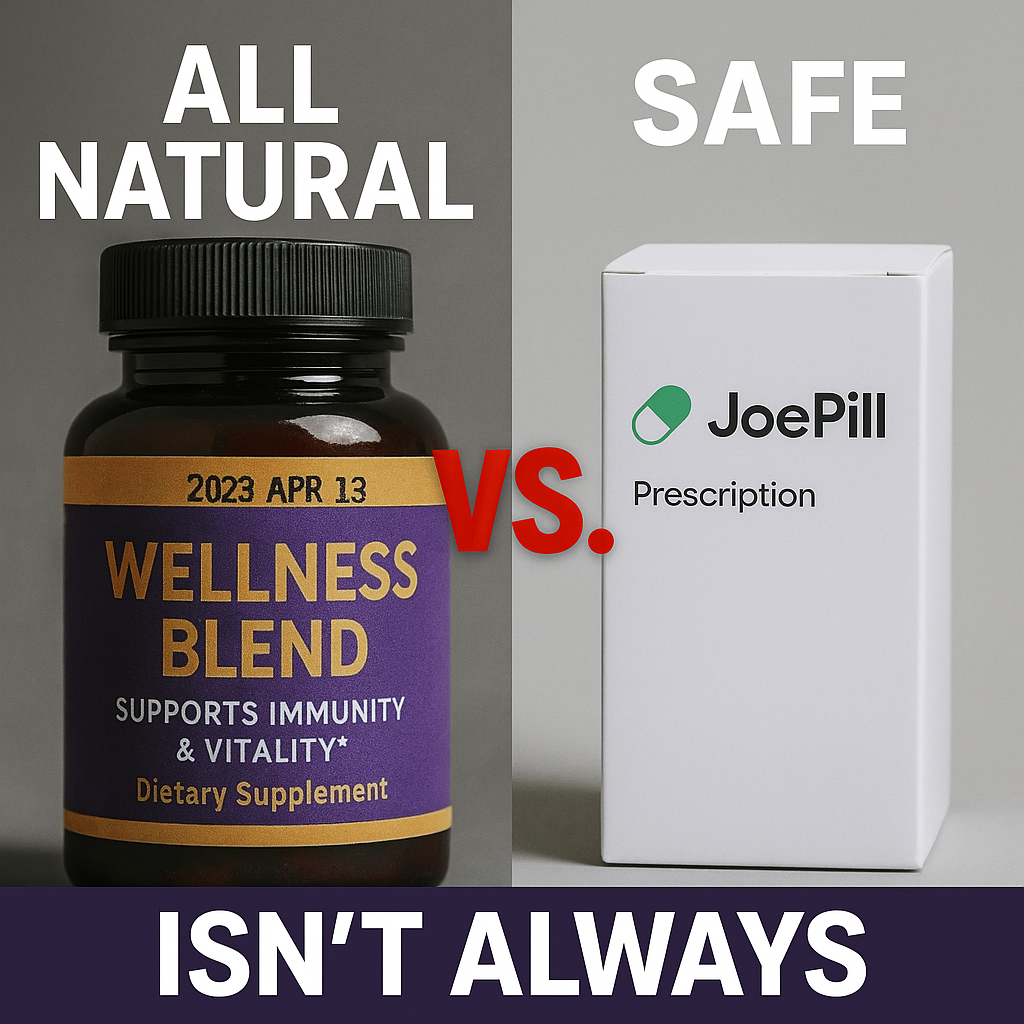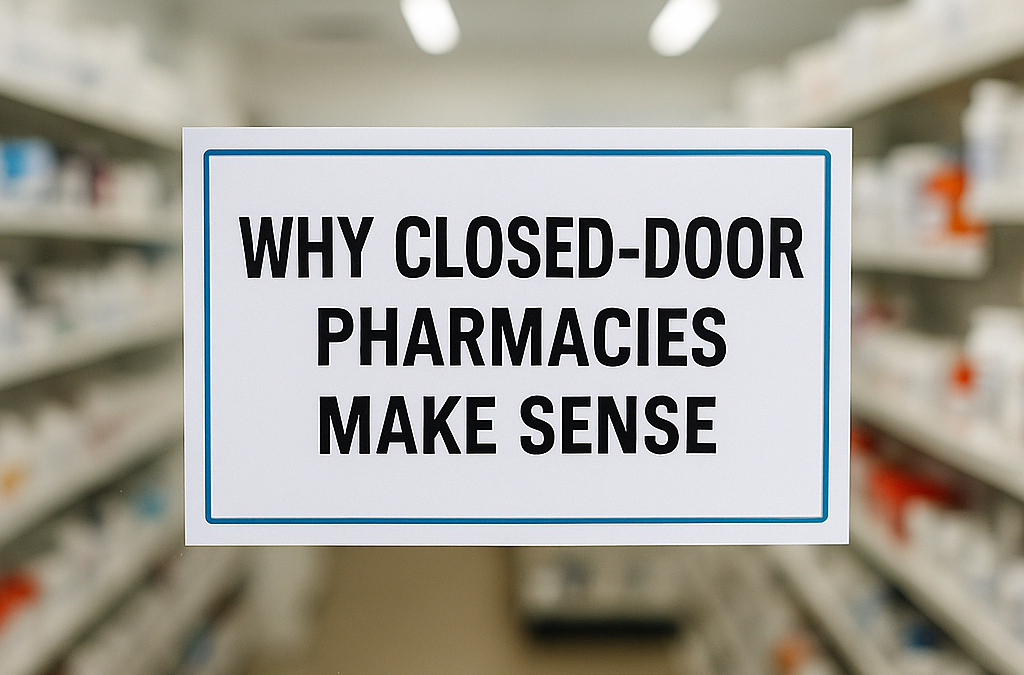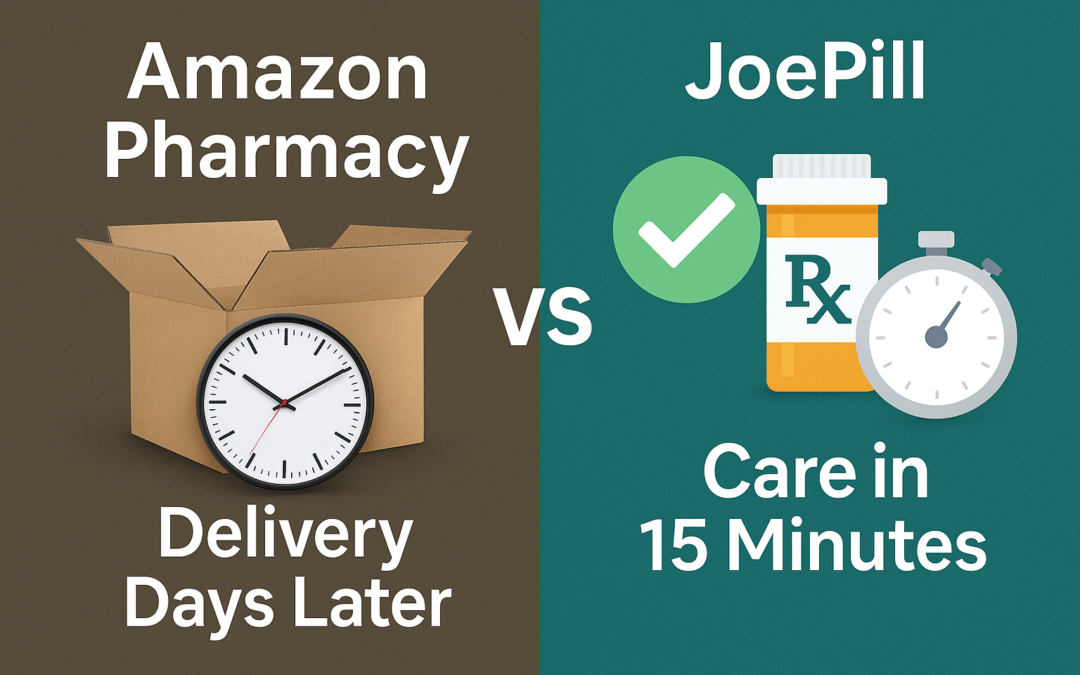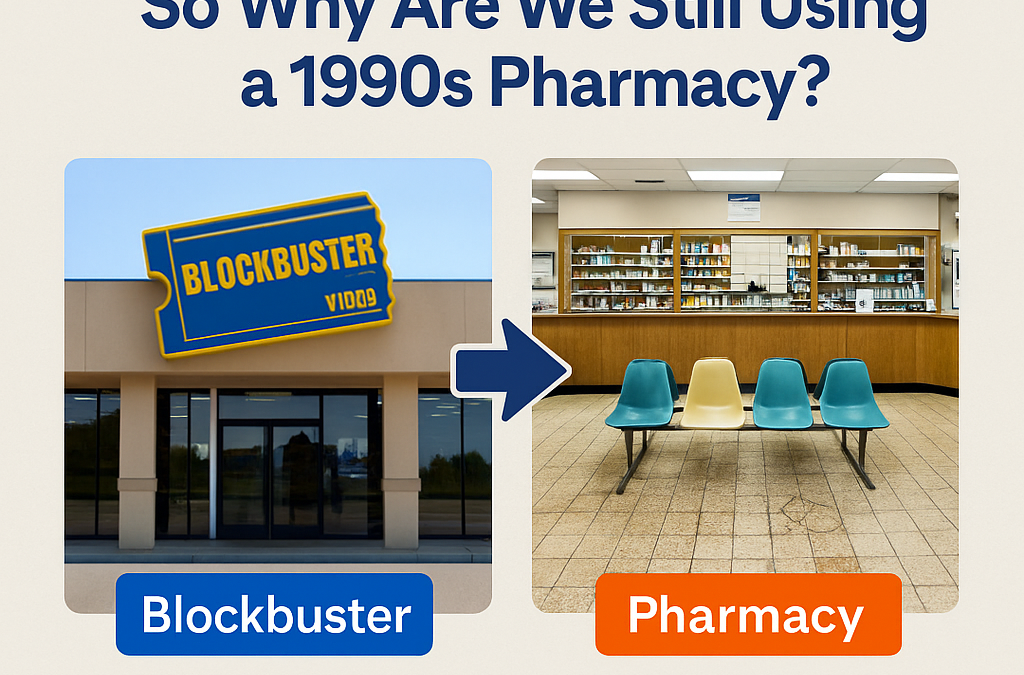
All-Natural Isn’t Always Safe: The Hidden Risks of Unregulated Wellness Products
It sounds reassuring: “all-natural”, “chemical-free”, “preservative-free”, or the ever-popular “supports wellness.” But here’s what most people don’t realize — those words don’t mean the product is safe. And they definitely don’t mean it’s been proven to work.
In fact, the wellness aisle is often filled with supplements and herbal products that can make bold health claims — without the same testing, regulation, or scientific scrutiny as real prescription medications.
Let’s Get Real: Natural ≠ Safe
Snake venom is all natural. So is arsenic. “Natural” is not the same thing as “safe,” and assuming otherwise can put your health at risk.
Most dietary supplements, herbal blends, tinctures, and wellness gummies sold in stores or online are not FDA-approved. That means:
- Their claims have not been evaluated for safety or effectiveness
- They are not required to prove they treat or prevent disease
- They can be manufactured with inconsistent dosages, fillers, or poor hygiene
In contrast, every prescription medication available through JoePill.com has been FDA-evaluated and prescribed by a licensed provider — not a wellness influencer.
The Loophole: Why These Products Are Allowed to Make Claims
Herbal supplement makers are often careful with their wording. Instead of saying “this product cures headaches,” they’ll say:
- “Supports cognitive clarity”
- “Promotes digestive wellness”
- “Balances mood”
These vague phrases fall under a loophole in the Dietary Supplement Health and Education Act (DSHEA), which allows these products to be sold without pre-market approval from the FDA.
That’s why the fine print often reads: “This statement has not been evaluated by the Food and Drug Administration. This product is not intended to diagnose, treat, cure, or prevent any disease.”
Do They Work? Sometimes. But Not Always.
We’re not saying every natural product is a scam. There are herbal treatments with proven effects — and some prescriptions are based on plant compounds too.
But the difference lies in testing, dosing, and monitoring. Prescription medications go through clinical trials. Supplements usually don’t.
Another Risk: Expired or Mishandled Products
One major issue with herbal supplements is shelf life. Many contain oils, dried leaves, or botanical extracts that degrade quickly.
Unfortunately, there are licensed pharmacies, many wellness shops and supplement vendors that do not regularly inspect expiration dates, temperature stability, or product integrity.
By the time you buy that $40 “natural immunity booster,” it may already be too old to work — or worse, growing mold. And if a pharmacy has expired “wellness” products offered up front, what does that tell you about their prescription or compounded products that you can’t see?
Who’s Selling These? Sometimes… a Weekend Warrior
Want to be a “certified wellness specialist”? In many cases, all it takes is a few hours of online CE credits or a weekend at a retreat with printed worksheets and essential oils.
There are no consistent licensing requirements, no medical school, and often no ongoing patient safety training. But that doesn’t stop these individuals from making bold claims about health, hormones, detoxing, or even cancer support.
Meanwhile, your JoePill prescription is issued by a licensed provider who follows real protocols, clinical guidance, and state medical board regulations.
Here’s What You Should Look For Instead
When it comes to your health — especially when symptoms are starting — don’t settle for flashy labels and Instagram wellness language. Look for:
- FDA-reviewed medications
- Licensed telemedicine providers (like the ones behind JoePill.com)
- Clear expiration dates and pharmacy-level handling
- Secure platforms that protect your health data
There’s nothing wrong with exploring natural approaches. But make sure you’re doing it with full context — not buzzwords and blind trust.
The Bottom Line
“All-natural” does not mean safe. “Wellness” does not mean effectiveness. And “no preservatives” does not mean quality.
At JoePill.com, we believe in prevention. But we also believe in science. That’s why every product you receive through our platform is:
- Reviewed by a licensed provider
- Filled through a certified pharmacy
- Shipped fast, with active ingredients that work (and a guaranteed one year minimum expiration date)
Next time you’re tempted by a supplement with big promises and tiny disclaimers, remember this: **snake venom is all natural too.**
FAQs
Are herbal supplements FDA-approved?
No. Most herbal supplements are not reviewed or approved by the FDA and are sold under looser dietary supplement regulations.
Can “natural” products still be dangerous?
Yes. Natural does not mean safe. Snake venom, arsenic, and mold are all natural — but all pose serious health risks.
Is JoePill a pharmacy or a supplement shop?
JoePill is a licensed telehealth service and pharmacy partner. All medications are FDA-reviewed and prescribed by licensed providers.










